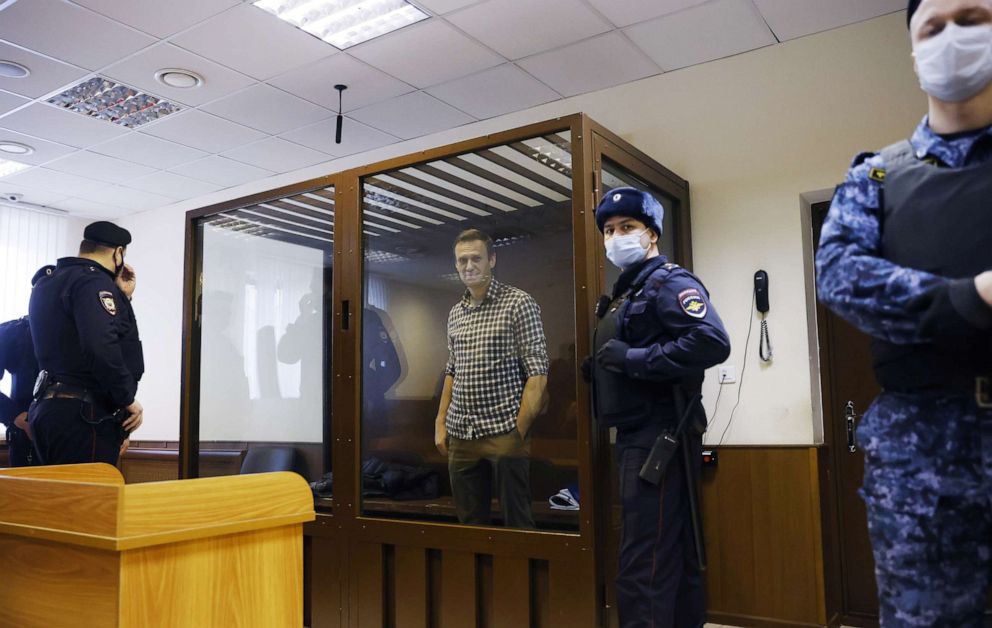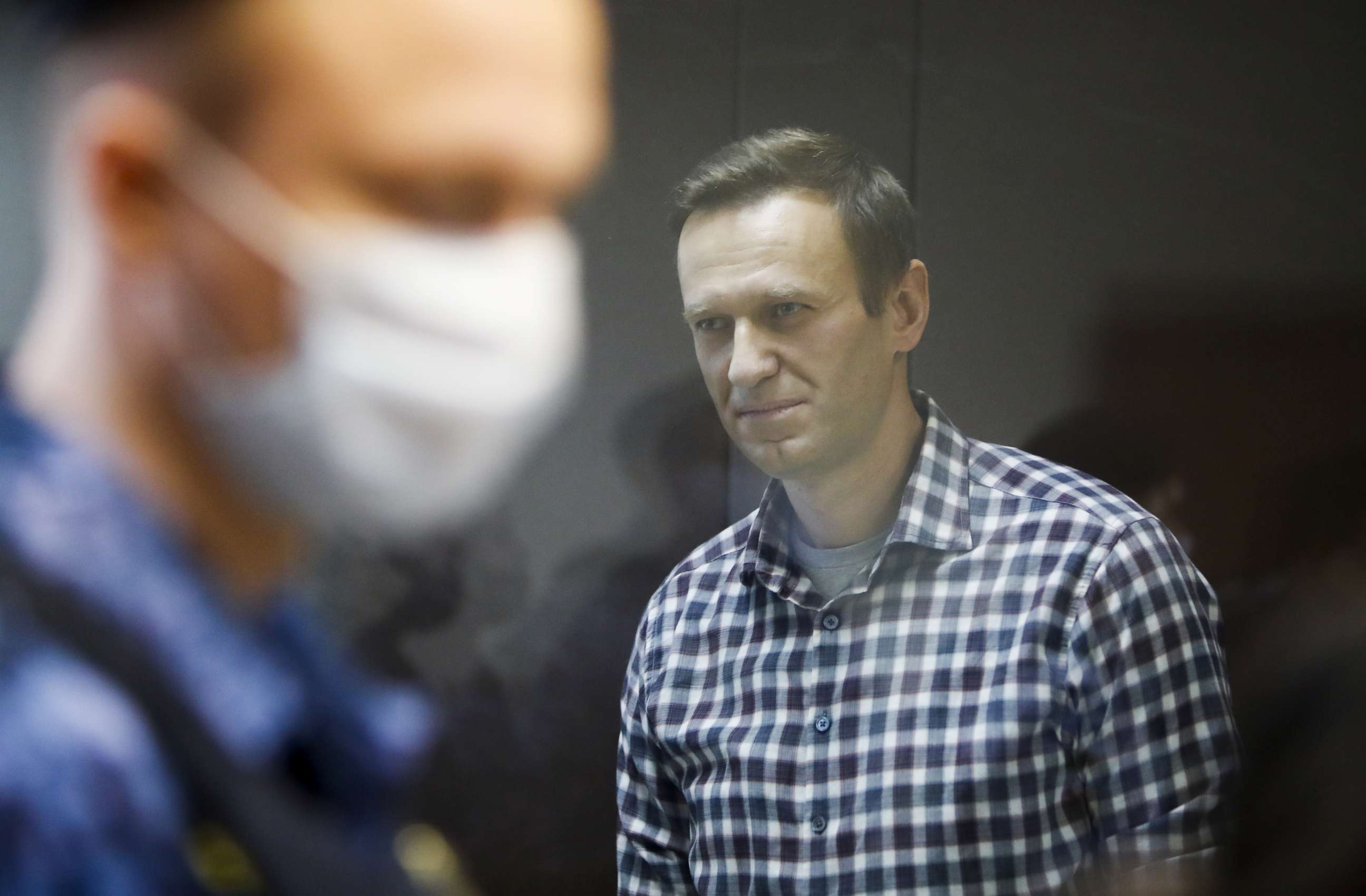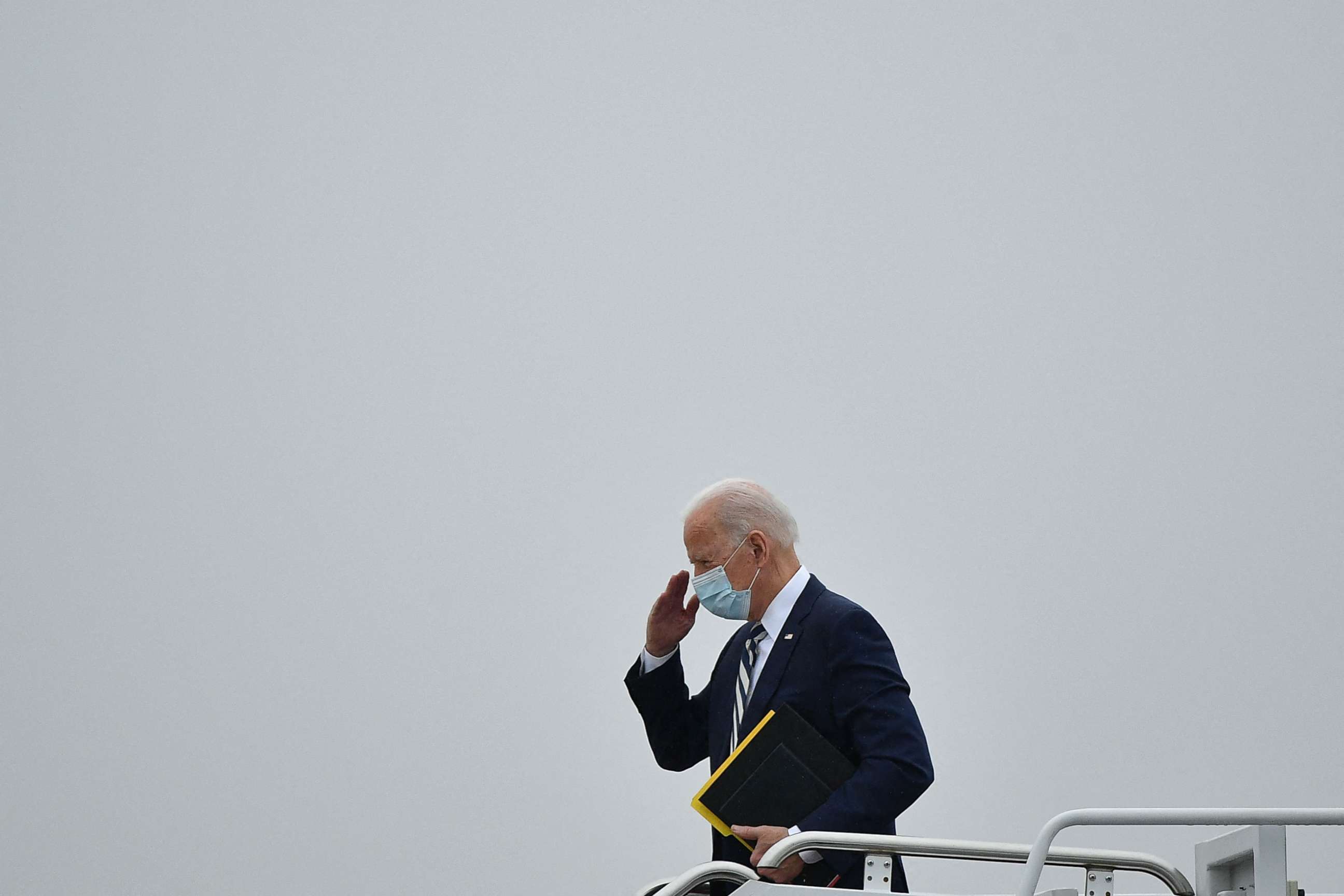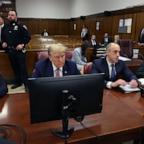Biden hits Russia with sanctions for opposition leader Navalny's poisoning, detention
The move was coordinated with U.S. allies in Europe in a message to Moscow.
The White House announced President Joe Biden's first sanctions against Russia on Tuesday over the Russian government's poisoning and detention of opposition leader Alexei Navalny, a State Department official confirmed to ABC News Monday.
The Biden administration sanctioned seven "senior" Russian officials and added one government research institute and 13 businesses to its export restrictions, senior administration officials announced Tuesday morning.
Amid criticism that the administration did not go far enough, the Russian Foreign Ministry blasted the announcement as a "hostile anti-Russian attack ... devoid of logic and meaning" and again cast doubt on Navalny's poisoning.
The sanctions were taken in concert with the European Union, with the bloc's 27 members announcing Tuesday penalties on four Russian officials for Navalny's imprisonment -- its first sanctions under its new human rights sanction program -- with the U.S. "catching up to the EU and U.K.," according to a senior Biden administration official, after former President Donald Trump did not take action.
Navalny, the leading opposition figure to Russian President Vladimir Putin, has been moved to a remote penal colony to serve his two-and-a-half-year sentence, a public commission confirmed Sunday. He was arrested for a probation violation after returning to Russia from Germany, where he was treated after being poisoned with a chemical weapon.

Last August, Navalny became sick on a flight in Siberia and was airlifted to Germany, where doctors concluded he was poisoned with Novichok, the military-grade nerve agent. The Kremlin has denied any role.
But a second senior administration official said Tuesday the U.S. intelligence community "assesses with high confidence that officers of Russia's Federal Security Service, FSB, used a nerve agent known as Novichok to poison Russian opposition leader Alexei Navalny on August 20, 2020."
In a report issued Monday, two United Nations' special rapporteurs also blamed the Russian government -- saying it attempted to kill Navalny and calling it part of an "apparent pattern of attempted targeted killings" to silence critics.
The Biden administration agreed, with the second official saying the attack on Navalny "follows an alarming pattern of chemical weapons use by Russia" that requires a response.
The U.S. Treasury sanctioned the director of the FSB, the main successor to the Soviet Union's KGB, along with Putin's chief of presidential policy directorate and another senior presidential aide, two deputy defense ministers, Russia's prosecutor general and the director of federal prisons.
The State Department also moved to limit defense exports to Russia, including for commercial space cooperation and sanctioned six Russian research entities involved in Russia's chemical weapons program, it said.
But the penalties did not include powerful Russian oligarchs close to Putin, even after Navalny's close associates circulated a list of names and argued targeting Russia's rich elite would have a greater impact than targeting senior officials.
Russia's Foreign Ministry said the sanctions will fail and warned the U.S. "not to play with fire."
"Calculations to impose something on Russia by means of sanctions or other pressure failed in the past -- and fail now," the ministry said in a statement Tuesday. "Regardless of the American 'sanctions bias,' we will continue to consistently and resolutely defend our national interests, rebuffing any aggression."

Former President Donald Trump never took action to penalize Russia, at times even casting doubt on the conclusion that Navalny had been poisoned: "It's tragic. It's terrible. It shouldn't happen. We haven't had any proof yet, but I will take a look," he said in September.
That meant Biden's administration is following behind the EU and the U.K. which sanctioned six individuals and one entity in October, according to the first senior official. Coordinating with those key U.S. allies makes these sanctions "stronger and more effective, particularly when it comes to Russia," the official added, because Europe has closer business ties.
The symbolic unity of simultaneous U.S. and EU sanctions sends a message to Moscow, but it's still unlikely to change the calculus in Putin's government. The financial penalties will have little impact, especially for those officials who have found ways around previous sanctions to maintain their assets, and few of these officials are likely to travel outside Russia.
Biden has said he will bring a tougher approach to Putin and end Trump's "rolling over" as the Russian president pursues repressive policies at home and aggressive campaigns overseas, from Ukraine to Venezuela to the U.S.
Upon taking office, Biden ordered the U.S. intelligence community to issue an assessment on Navalny's poisoning, along with the SolarWinds hack, the alleged bounties on U.S. troops in Afghanistan, and Russian interference in the 2020 election. While those reviews continue -- likely weeks, not days away -- the administration is still trying to move quickly on Navalny's case with these penalties.
Some critics have urged the U.S. and its European allies to go further over Navalny's imprisonment, but it seems Biden may be unwilling to push too far and have relations spiral further out of control. His administration is "neither seeking to reset our relations with Russia, nor are we seeking to escalate" with Russia, the first senior official said Tuesday.

Republican and Democratic lawmakers in the U.S. have called for action since Navalny was arrested upon his return to Russia -- a move by Russian security forces that brought tens of thousands into the streets across the country in some of the largest demonstrations against the Kremlin in years.
In a letter last month, the Democratic chair and Republican ranking member of the House Foreign Affairs Committee urged Biden to implement sanctions for the use of a chemical weapon as required by U.S. law.
Sen. Bob Menendez, D-N.J., chair of the Senate Foreign Relations Committee, urged Biden to go further, saying in a statement Tuesday, "Substantial work remains in restricting the ability of corrupt Russian actors to continue accessing the U.S. financial system, and I expect the administration to take additional measures to shore up our financial defenses against dirty Russian money."




